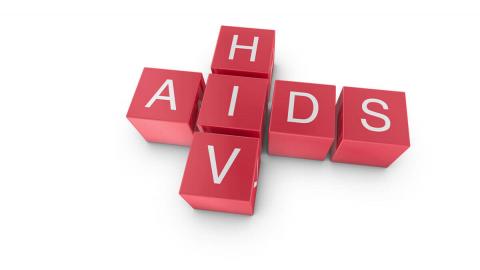The Ghana AIDS Commission has raised concern about risky sexual behaviours Ghanaians are indulged in which it says are contributing to the spread of HIV/AIDS in the country.
According to the Director-General of the AIDS Commission, Dr. Kyeremeh Atuahene, more Ghanaians are now engaged in unconventional sexual practices they are exposed to especially on the internet, putting themselves at risk of HIV infections and eroding the progress Ghana has made in tackling the disease.
“There are various practices when it comes to sex now in Ghana now. Because people are exposed to all kinds of media materials and they would want to experiment.
So you have people who engage in orgy sessions, you have people who are more interested in having anal sex , having alcoholic drinks or other illicit drugs before having sex and trying all kinds of things, all kinds of things. All these increase the risk of one getting HIV,” he said.
Dr. Atuahene said this while speaking on the latest HIV figures released by the AIDS Commission.
The data, presented at a press conference yesterday, reveals that Ghana recorded 16,574 new infections last year with over 355,000 persons living with the disease.
Out of the number of persons living with HIV, females are twice the number of males.
Speaking in an interview with Accra-based Joy FM, the Director-General of the Commission revealed that a staggering number of 100,000 persons living with HIV are unware and are spreading the disease unknowingly to others.
Dr. Atuahene believes majority of the persons, who are positive and unware of their status, are men, who are passing on the disease to especially women.
“The fact is based on the data is that majority of men living with HIV may not know their status and that’s concerning and men has to take the bold step and test for HIV”.
He indicated that females are vulnerable to getting HIV infections due to their biological makeup.
This, he added, has been compounded by the risky sexual behaviours indulged in by many especially women, who, the Commission revealed, are engaged in unprotected sex with multiple partners.
“The fact that women are now engaged in unprotected sex with multiple partners is another headache and it should be a shared headache of all Ghanaians because we know that women have biological vulnerability when it comes to HIV and other sexually transmitted infections and it is the responsibility of women and their partners to ensure that women are protected”.
Dr. Atuahene said although Ghana has what it takes to end HIV/AIDS infections by 2030, it will be impossible to achieve this target if the current trend is not reversed.
“If the level of risky behaviours continued as it is today and that we have the high levels of new infections as we are seeing today, and if we do not have the necessary resources to actually make investment in areas to ensure that we are able to provide the necessary services for those who need the services, then we cannot achieve the 2030 target,” he warned.




